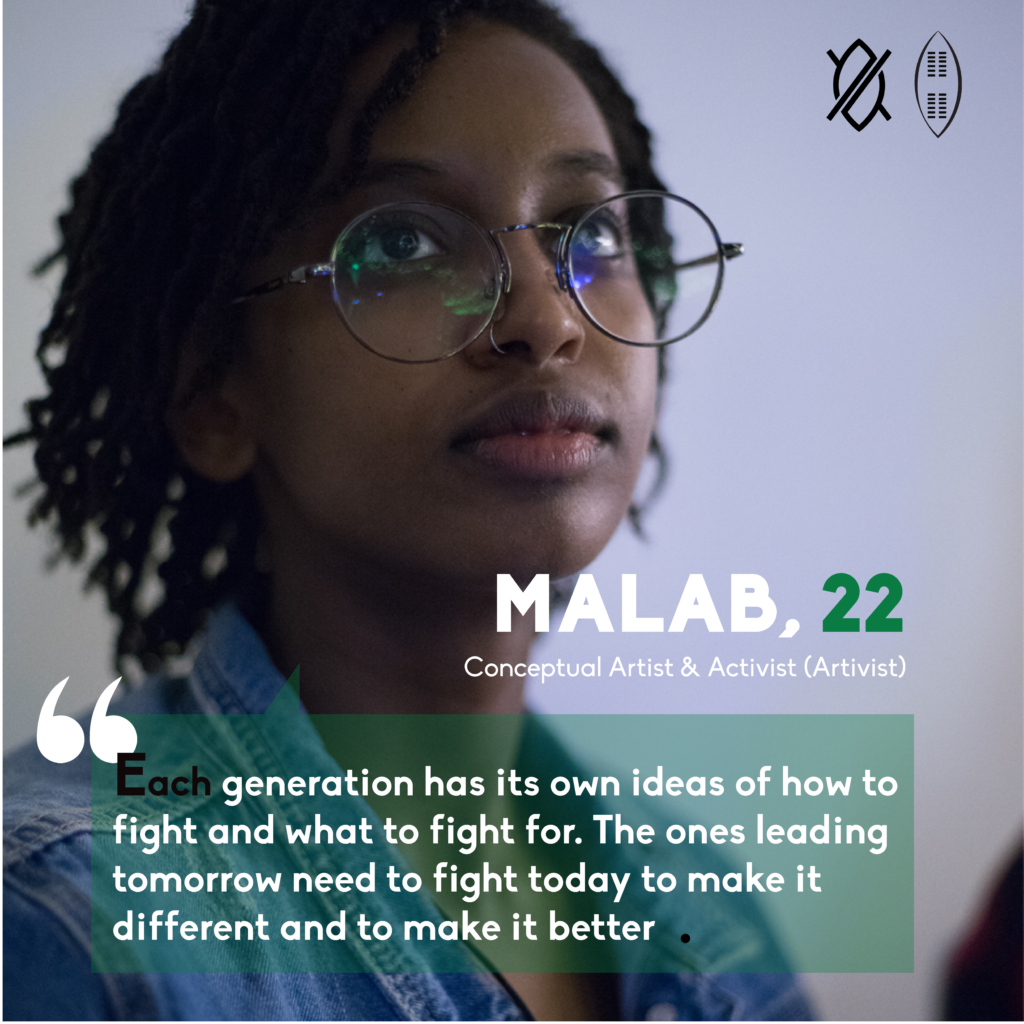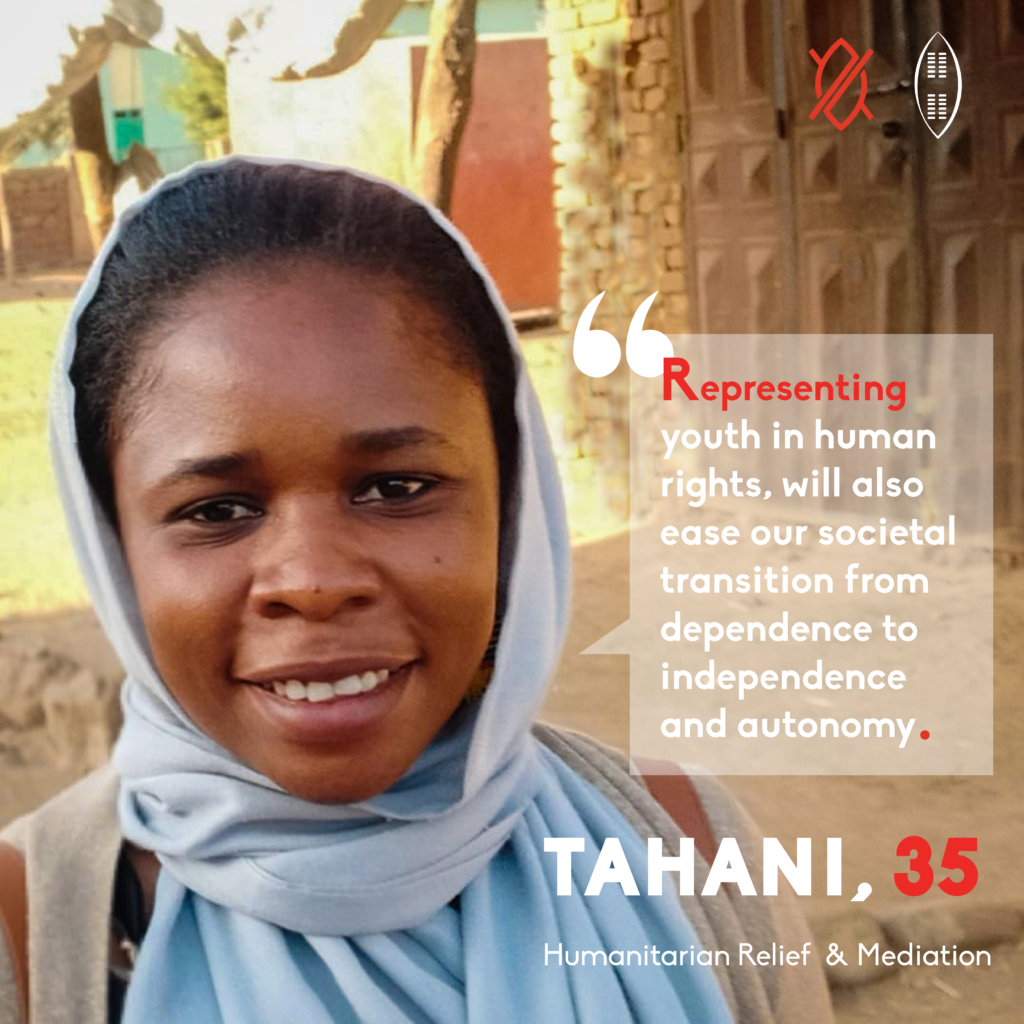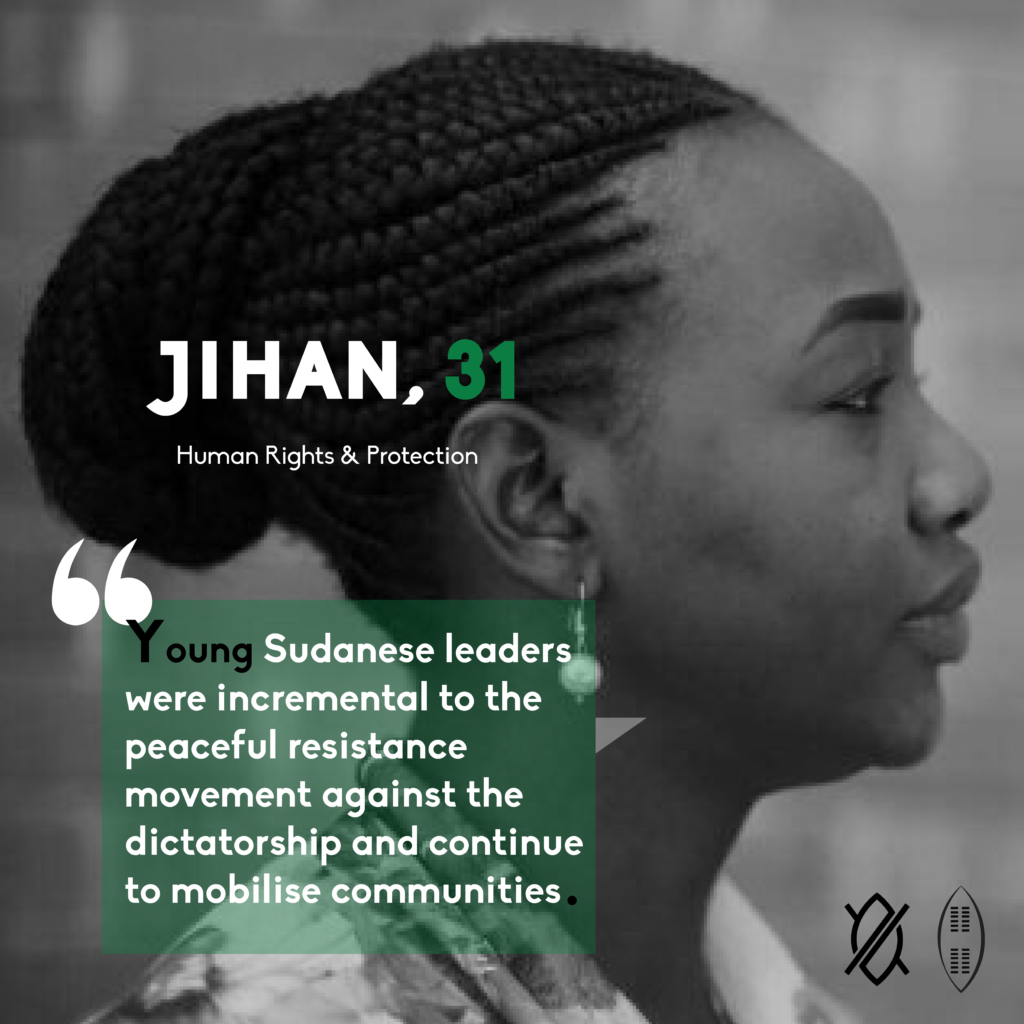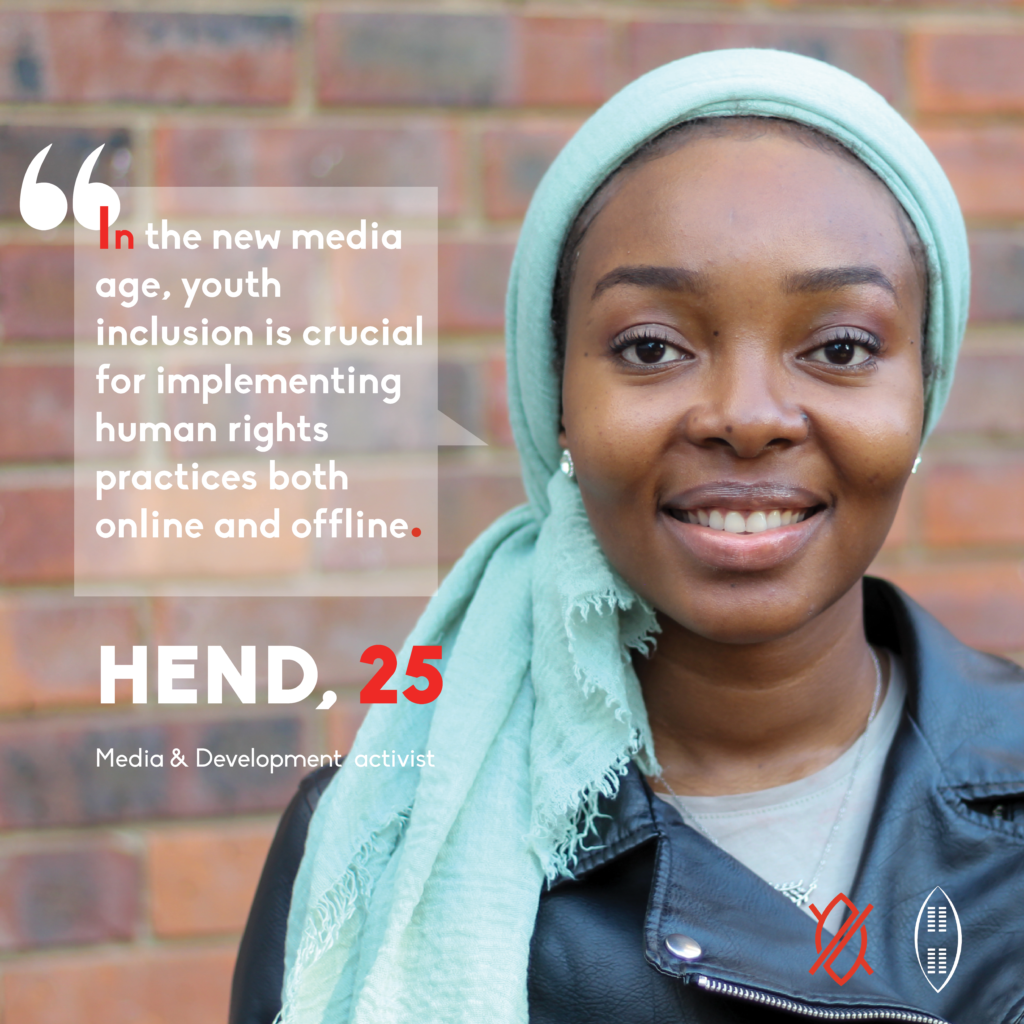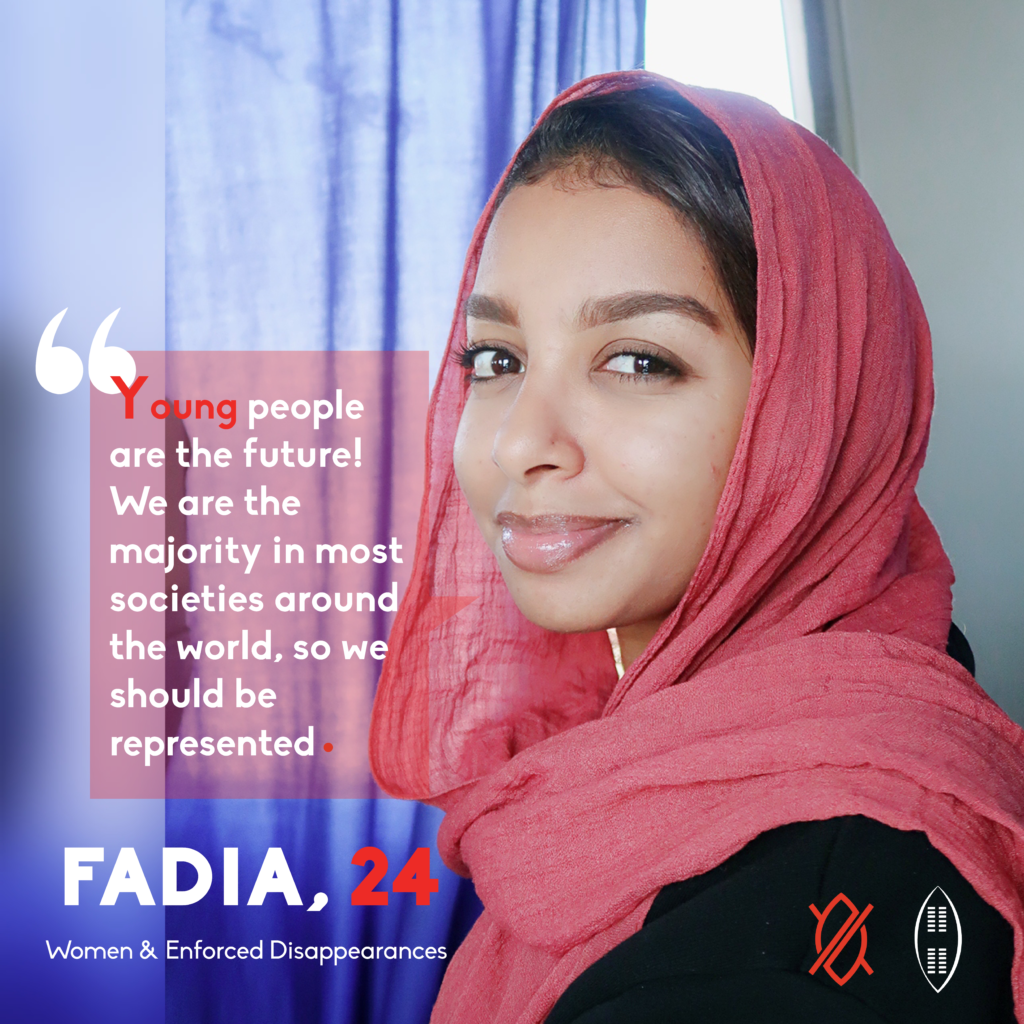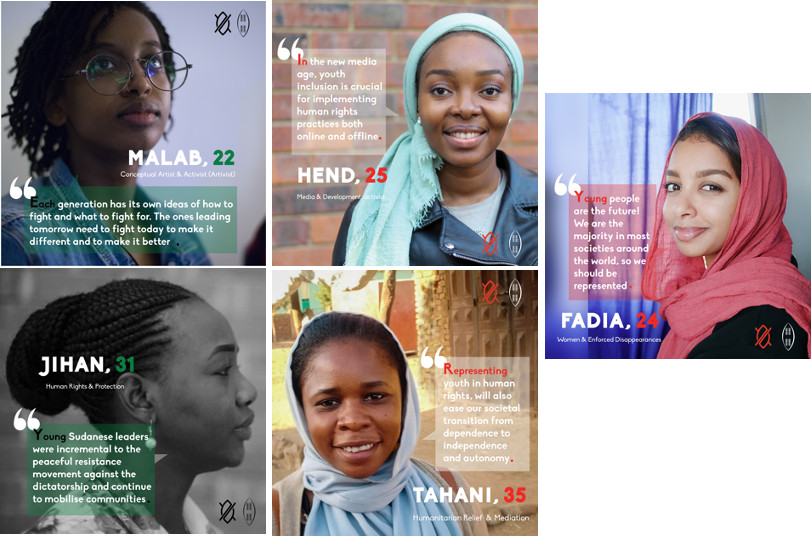
13 August, 2020
International Youth Day 2020 Campaign
75% of Africa’s population is below 35, yet young people rarely get a seat at the table where their future is shaped: there is a democratic deficit when it comes to youth representation in decision-making. Yet, young people can be true catalysts for change. Sudan’s revolution is one example of the importance and effectiveness of youth activists, who fight for their future. To celebrate #YouthDay2020, we want to shine a light on five young activists from Sudan. Read what they have to say on youth representation in human rights activism!
- Meet Malab, a conceptual artist & activist (artivist): “Each generation has its own ideas of how to fight and what to fight for. Issues will be overlooked, if the affected people are not involved in pursuing change. Youth activists fight for their future, for a better tomorrow – it’s the entire point of activism. The ones leading tomorrow need to fight today to make it different and to make it better.”
- Meet Tahuya Ismail a humanitarian worker: “Young people’s potential is often limited, because they are not granted their rights. Systemically engaging youth in human rights activism will help them reach their individual potential. But representing youth in human rights, will also ease our societal transition from dependence to independence and autonomy.”
- Meet Jihan Abdalrahman, protecting human rights for a civil society organisation: “Young Sudanese leaders were incremental to the peaceful resistance movement against the dictatorship and continue to mobilise communities. Sudan is now in a transitional period, where transitional justice is a political obligation to hold those accountable that gravely violated our human rights in the past 30 years. The youth is the future of our country, so it is important that they are involved in this transition and it is vital that they understand the importance of human rights for a new Sudan.”
- Meet Hend Salih, working in media and development: “In the new media age, youth inclusion is crucial for implementing human rights practices both online and offline. Youth constitute the majority of online digital users and there’s a need to work together and monitor violations of human rights across the world.”
- Meet SlayKaii, working on women’s rights and enforced disappearances: “Young people are the future! We are the majority in most societies around the world, so we should be represented. And we are catalysts for change: we do not cling to old beliefs or ideas. As we could see in Sudan, youth was the engine behind our revolution. Including youth could bring great potential for the promotion of human rights.”




